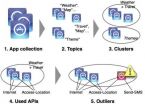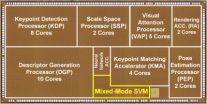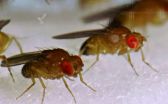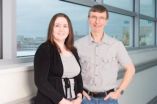(Press-News.org) "How do I know that the new installed app behaves as described?" asks Andreas Zeller, professor of software engineering at Saarland University. So far experts have identified so-called malicious apps by checking their behavior against patterns of known attacks. "But what if the attack is brand-new?" asks Zeller.
His group seems to have found a new method to answer all these questions. Zeller summarizes the basic idea as follows: "Apps whose functionality is described in the app store should behave accordingly. If that is not the case, they are suspect."
His research group has named the software based on this idea "Chabada". For every app, it analyzes the description of its functionality that can be read in the app store. With methods from natural language processing, it identifies the main topics, for example "music". After that, Chabada clusters applications by related topics. For instance, the cluster "travel" consists of all apps that deal with traveling in some way. Using program analysis, Chabada detects which data and services are accessed by the apps. Travel apps normally access the current location and a server to load a map. So a travel app secretly sending text messages is suspicious.
The researchers applied this approach on 22,521 apps from the Google Play Store. With a purpose-built script, they had downloaded the 150 most popular apps in the 30 categories from Google Play during spring and winter of last year. Chabada then analyzed them. Finally, the computer scientists from Saarbruecken investigated the 160 most significant outliers to verify Chabada's selection. The result: It had detected 56 percent of the existing spy apps, without knowing their behavior patterns beforehand.
How important the researchers' efforts are is shown by a news item published by the Russian software company "Doctor Web" at the end of June last year. It reported that the company had discovered various malicious apps on the "Google Play" platform. Downloaded onto a smartphone, the malware installed other programs, which secretly sent text messages to expensive premium services. Although Doctor Web, according to its own statement, informed Google immediately, the malicious apps were still available for download for several days. Doctor Web estimates that in this way up to 25,000 smartphones were used fraudulently. "In the future Chabada could serve as a kind of gatekeeper, ensuring that malicious apps will never make it into an app store", Zeller explains.
The computer scientists from Saarbruecken will present their new approach at the International Conference on Software Engineering (ICSE) in Hyderabad, India at the end of May. Already in March, Google security researchers will be meeting with the Saarbruecken team. Google has also already invited Zeller and his colleagues to have Chabada analyze the whole Google App Store.
INFORMATION:
Background of computer science in Saarbruecken at Saarland University:
The core of computer science in Saarbruecken is the faculty of computer science. Only a few meters away on campus are seven more internationally well-respected research institutes. Apart from the two Max Planck Institutes, for Informatics and Software Systems, these are the German Research Center for Artificial Intelligence (DFKI), the Center for Bioinformatics, the Center for IT-Security, Privacy and Accountability (CISPA) and the Cluster of Excellence "Multimodal Computing and Interaction".
More information:
Project website:
http://www.st.cs.uni-saarland.de/chabada/
Editor:
Gordon Bolduan
Science Communication
Competence Center Computer Science Saarland
Email: bolduan@mmci.uni-saarland.de
Tel: +49 681 302 70741
Tips for radio journalists:
You can do telephone interviews in studio quality with Saarland University researchers via radio codec (IP connection with direct dialing or via ARD-star-dot 106813020001). Please contact the editorial department for interview requests (+49 681/302-3610).
Wisdom of app stores: Early identification of malicious Android apps from Google Play
2014-02-18
ELSE PRESS RELEASES FROM THIS DATE:
Do Guam mantas plan moon parties?
2014-02-18
Several of Hartup's paddler and free diving friends told her about seeing mantas congregating purposefully in an area where surgeonfish were spawning. Since they were able to give her an exact date, Julie was able to calculate the moon phase, which is important as many fish synchronize their spawning with the moon. Using this information she predicted when the spawning event would occur that upcoming year and was there to witness a shoal of spawning surgeonfish accompanied by a fever of mantas.
Hartup's research findings not only highlight important information about ...
Environmental issues examined through cohesive efforts
2014-02-18
CHICAGO – Solving crucial environmental issues such as global warming and water supply involves managing competing interests, uncertainty and risk, and this is best done through meaningful collaboration in a neutral environment.
Arizona State University Barrett Honors College Lecturer John N. Parker discussed the ways in which scientists, stakeholders and policy makers can communicate effectively by coming together through boundary organizations at the annual meeting of the American Association for the Advancement of Science in Chicago.
Boundary organizations are ...
NUS researchers make new discovery of protein as a promising target for treatment of ATC
2014-02-18
Anaplastic thyroid carcinoma (ATC) is an aggressive type of cancer with a poor prognosis for which there is currently no effective treatment. Researchers from the National University of Singapore (NUS) have discovered for the first time that an epithelial basement membrane protein, called laminin-5 gamma-2 (LAMC2), has the potential to be an ideal target for the treatment of ATC.
Led by Professor H. Phillip Koeffler, Senior Principal Investigator, and Dr Manoj Garg, Research Fellow, at the Cancer Science Institute of Singapore (CSI Singapore) at NUS, the team is also ...
KAIST developed low-powered, high-speed head-mounted display with augment reality chip
2014-02-18
Daejeon, Republic of Korea, February 17, 2014 – Walking around the streets searching for a place to eat will be no hassle when a head-mounted display (HMD) becomes affordable and ubiquitous. Researchers at the Korea Advanced Institute of Science and Technology (KAIST) developed K-Glass, a wearable, hands-free HMD that enables users to find restaurants while checking out their menus. If the user of K-Glass walks up to a restaurant and looks at the name of the restaurant, today's menu and a 3D image of food pop up. The Glass can even show the number of tables available inside ...
Gender and genes play an important role in delayed language development
2014-02-18
Boys are at greater risk for delayed language development than girls, according to a new study using data from the Norwegian Mother and Child Cohort Study. The researchers also found that reading and writing difficulties in the family gave an increased risk.
"We show for the first time that reading and writing difficulties in the family can be the main reason why a child has a speech delay that first begins between three to five years of age," says Eivind Ystrøm, senior researcher at the Norwegian Institute of Public Health.
Ystrøm was supervisor of Imac Maria Zambrana, ...
Researchers identify new way to control stone fruit disease
2014-02-18
Researchers at the University of Kent and East Malling Research have identified a new way of controlling a fungal disease that can have a devastating impact on the UK's valuable cherry and plum crops.
Brown rot disease – caused by the agent Monilinia laxa – attacks stone fruit as well as causing blossom wilt and twig canker. Traditionally, this has been controlled through the use of fungicide treatments, but in some cases these are now becoming ineffective.
Now researchers from the two organisations have identified a new strategy for controlling the disease, using biological ...
In search of lost genes
2014-02-18
How do new genes arise? Current research shows that so-called "orphan genes" may appear as if by magic as a result of mutations in segments of DNA that previously had no function. Orphan genes were first discovered in the fruit fly but are found in all organisms, including man. Strikingly, up to 30 per cent of the total number of genes in an organism may be orphans and these genes may rapidly acquire functions. Scientists from the Institute of Population Genetics of the University of Veterinary Medicine, Vienna (Vetmeduni) have now investigated the fate of orphan genes. ...
HIV drug used to reverse effects of virus that causes cervical cancer
2014-02-18
A commonly-used HIV drug has been shown to kill-off the human papilloma virus (HPV) that leads to cervical cancer in a world-first clinical trial led by The University of Manchester with Kenyatta National Hospital (KNH) in Nairobi.
Drs Ian and Lynne Hampson, from the University's Institute of Cancer Sciences and Dr Innocent Orora Maranga, Consultant in Obstetrics and Gynaecology at KNH in Nairobi examined Kenyan women diagnosed with HPV positive early stage cervical cancer who were treated with the antiviral HIV drug lopinavir in Kenya.
The study looked at 40 women ...
Leeds researchers build world's most powerful terahertz laser chip
2014-02-18
A paper in the Institution of Engineering and Technology's (IET) journal Electronics Letters reports that the Leeds team has exceeded a 1 Watt output power from a quantum cascade terahertz laser.
The new record more than doubles landmarks set by the Massachusetts Institute of Technology (MIT) and subsequently by a team from Vienna last year.
Terahertz waves, which lie in the part of the electromagnetic spectrum between infrared and microwaves, can penetrate materials that block visible light and have a wide range of possible uses including chemical analysis, security ...
The conditions for a society to become a democracy are analyzed
2014-02-18
This news release is available in Spanish. In view of the changes that have taken place in Europe,JuleGoikoetxea, a lecturer at the UPV/EHU's Faculty of Social Sciences and Communication, has been conducting research into "the conditions needed for a people to become a democracy or sustain its democratisation process over time."The study has been published in the specialised journal Nationalities Papers.
According to Goikoetxea, nation is not synonymous with demos: "The nation is the will, socially and historically articulated, that a group has in order to be a political ...






